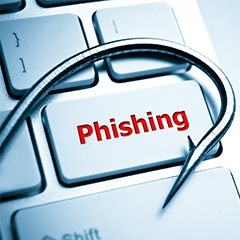New Warning: Watch Out for Fake ACA-Related Tax Bill E-mails
October 24, 2016 | Fraud Prevention, IRS Regulation, Tax Planning, Tax Preparation
 The IRS recently released a warning for taxpayers to be on guard against bogus emails telling recipients that they owe money for taxes related to the Affordable Care Act (ACA). The IRS has received numerous reports from around the country about scammers sending a fraudulent version of CP2000 notices for tax year 2015. These scam emails usually includes a fake CP2000 as an attachment.
The IRS recently released a warning for taxpayers to be on guard against bogus emails telling recipients that they owe money for taxes related to the Affordable Care Act (ACA). The IRS has received numerous reports from around the country about scammers sending a fraudulent version of CP2000 notices for tax year 2015. These scam emails usually includes a fake CP2000 as an attachment.
What Is a CP2000?
If income reported from third-party sources (such as an employer) doesn’t match the income reported on a person’s tax return, then a CP2000 notice is mailed by the IRS to a taxpayer. It’s important to note that the notice is always sent through the United States Postal Service and is never sent as an email.
A CP2000 notice isn’t a bill; it informs a taxpayer about an issue and how it affects an individual’s tax situation. The notice contains instructions on what a taxpayer should do if he or she disagrees with the information. It also requests that a check be made out to “United States Treasury” if the taxpayer agrees additional tax is owed. Or, if an individual is unable to pay, the notice provides instructions for payment options, such as installment payments.
What Does the Fake CP2000 Notice Email Say?
Here are some other characteristics of the fake emailed CP2000s:
- The underreported issue is said to be related to the ACA requesting information regarding 2014 coverage.
- The fraudulent CP2000 notice included a payment request that taxpayers mail a check made out to “I.R.S.” to the “Austin Processing Center” at a Post Office Box address. This is in addition to a “payment” link within the email itself.
- They appear to be issued from an Austin, Texas, address.
- The payment voucher lists the letter number as 105C.
Scams Take Many Forms
Unfortunately, this scam is just the latest in a long series of IRS impersonation schemes. They can involve threatening telephone calls, demanding letters and phishing emails. If you receive this scam email (or others), you should forward it to phishing@irs.gov and then delete it from your email account.
Beware of any unsolicited phone calls, emails, and other communications purported to be from the IRS or any unknown source. Never open an attachment or click on an email link sent by sources you don’t know.
